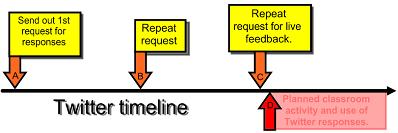Que Sera, Sera, but timing is everything, so they say. DepositMOre follows on directly from the DepositMO project, but temporally the linkage was not quite as expected. Here we review how the project finally got to the start line, to begin to understand whatever it will be and whatever small changes delay may have wrought.
We last blogged here about DepositMO on 14 February. At that time we had submitted a bid to a JISC call for proposals – Deposit Projects: Benefits Realisation – to build on the work through a new project, already identified in the bid as DepositMOre. The aim of that call was to offer some direct continuation for projects in the original JISC Repository Deposit programme strand, for successful bids. For that reason there would be a fast-track presentation and evaluation of bids, with a view to new projects starting in March 2012, and finishing within 6 months.
While we heard positive feedback from the evaluation committee, we didn’t get the green light to begin in March. Instead the light turned green in July. Bigger wheels than this decision have been turning at JISC, so some indecision was understandable, even if we were left in a period of uncertainty, not sure when or if the new project would get approval. Despite the delay, it says a great deal about the commitment of JISC and programme manager Balviar Notay to this area of work, and we are grateful that she persisted and delivered the project to us.
Projects emerge from calls, and are directed by those calls. The requirement of this call was to show deposit of more content in real repositories, using the tools developed in the first phase of the work, in our case DepositMO. In other words, a focus on deposit rather than development. A consequent requirement was that we partner with some institutional repositories: in DepositMO we had partnered with technical developers. These would not be the same partners, although the small core project team at Southampton would be the same.
This, then, is what the project looks like, as described in the project proposal. This was the final version to be submitted to JISC and includes changes responding to feedback from the evaluation committee. Although this was the version that was finally accepted, and forms the basis of the project, the outcome remained uncertain at this stage. It can be seen from the cover page that this version was anticipating a schedule starting in June 2012.
So with repository partners on board and the bid submitted, we waited to report the formal outcome to them, believing throughout that the outcome was imminent. When that decision arrived some months after the original submission and presentation we realised we would have a job to keep all the partners with us on a revised schedule, and that we would have to be flexible on a that schedule. It was unlikely we would be able to start immediately.
Does anyone remember the summer of 2012? In the UK it was essentially the Olympics, then everyone went away to recover. I’m pleased to say, however, that we were able to use that time to work with the respective repository partners to put together a revised project timescale that they could work with. As a result the project will run for 6 months to end March 2013.
There has been one significant change. I was fortunate to work with Dave Tarrant as the axis of DepositMO at Southampton. Dave motivated the shape and development profile of both projects, but in the intervening period has committed to representing Southampton in other big projects. In his place we are delighted to welcome Tim Brody to DepositMOre. Tim is known for his distinguished work in the repository field, most recently as lead developer for EPrints but also for related repository services such as ROAR, Citebase, and others.
Given the time that elapsed since the bid, the subsequent space that created for discussion and thinking about the work, and surrounding developments, not everything about the project will be exactly as envisaged. We will explore what has changed in terms of technical development, and introduce each of our repository partners, in the next posts.



0 Responses
Stay in touch with the conversation, subscribe to the RSS feed for comments on this post.